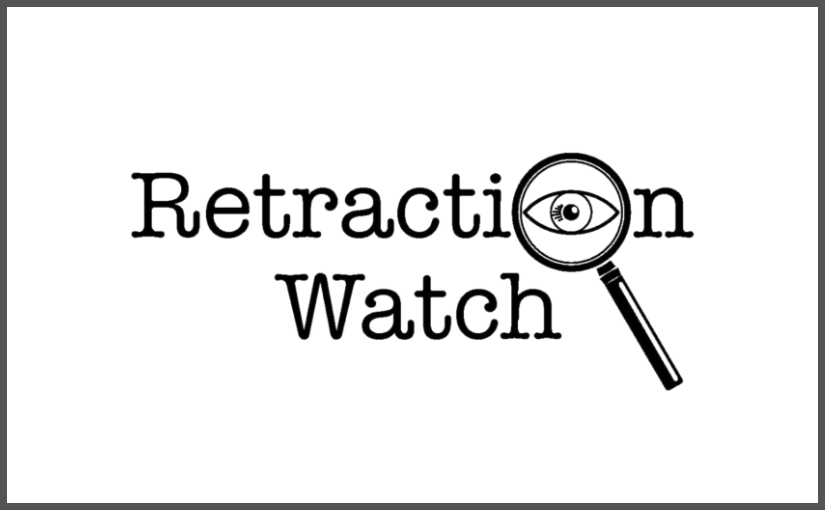Once upon a time, a long time ago, two science journalists had an idea for a blog about retractions. And on Aug. 3, 2010, Retraction Watch launched, detailing in the first post why retractions matter.
And now, 15 years and 6,700 posts later, that work seems more important than ever.
We are gratified every day to see Retraction Watch driving the conversation on integrity in scientific research. Our work has provided the foundation for stories on mass resignations at journals, how fake phrases end up in the literature, the retraction of a paper claiming evidence for an ancient comet with Biblical ties. We’ve gotten shoutouts in Science, which included links to our stories as examples for scientists of how to respond constructively to critiques of their work, and in Nature, which urged universities to examine their own retraction data.
Journalists turn to us to comment on issues such as “publish or perish” culture, the Trump administration’s call for government scientists to withdraw in-press manuscripts, and of course on the recent high-profile retraction of the “arsenic-life” paper in Science.
The Retraction Watch Database was central to recent studies looking at retractions in specific fields and in certain clinical practice guidelines, anomalies in citations universities use in their rankings, retractions by institution, retraction rates by gender, and even a report to the U.S. Congress by the White House Office of Science and Technology Policy.
Our Adam Marcus and Ivan Oransky penned an editorial in The Atlantic on how citing literature can be manipulated for any cause, and an article in American Scientist about how researchers respond to retractions; Ivan wrote in Quillette about the politicization of retractions.
This year, the Council of Science Editors honored us with the 2025 Award for Meritorious Achievement. We hired two fulltime journalists. We’ve published stories with partners, including Science and The Conversation. More than 4 million people came to our website. Our Retraction Watch Database surpassed 60,000 entries, more than any other such repository. Our Hijacked Journal Checker is up to 345 journals.
But what we’re celebrating on our 15th anniversary is the growth and expansion of our parent nonprofit, The Center for Scientific Integrity. We announced three exciting new projects this year:
- The Elisabeth Bik Science Integrity Fund, launched with the proceeds of Bik’s Einstein Award, is providing financial resources to Bik and other sleuths and collaborators, as well as funding for training programs, grants, or awards for science integrity advocates. Read more about it in Science.
- Our Sleuth in Residence Program expanded our team to include David Robert Grimes and Mariana Ribeiro, who are bringing their research expertise to the dozens of tips we receive. The goal of the program is to build capacity in this space to emphasize the value of compensating and protecting the critical work of sleuths.
- And we launched the Medical Evidence Project, to investigate and rapidly disseminate problems in the medical literature that directly affect human health. Led by James Heathers, the project will leverage the tools of forensic metascience to identify problems in scientific articles, combined with the experience and platform of Retraction Watch to publicize those findings. Read more about it in Nature, Politico and Le Monde.
And, we’re hiring more staff to support all our projects.
We’re thrilled by this growth, and look forward to seeing where these projects take us. And we have some exciting ideas of other ways we can continue to keep individuals, institutions and publishers accountable.
None of this would have been possible without you, our readers, who value and support our work. Here’s a way you can continue to support us to keep us going for the next 15 years:
For our 15th anniversary, we’re aiming to raise $15,000.
A fair chunk of our budget comes from individual donations. These funds help pay freelancers to report stories, for public records requests, for tech tools to help us do our jobs, and much more. And because such donations are typically unrestricted, they can fill in the gaps where needed, and extend the life of grant-funded projects, leaving us more time to do the work rather than fundraise.
As an added incentive, for a limited time, your donation will be matched, up to $7,500. Every dollar counts, and for this fundraising cycle, your dollars will count double!
Retraction Watch stories have always been free, and we are committed to keeping it that way. Show your support and appreciation for the work we do by donating at the link below.
Ready to make a tax-deductible contribution to support our work? For donations to Retraction Watch or The Center for Scientific Integrity, donate here using Paypal or here using Square. You can also donate directly to the Elisabeth Bik Science Integrity Fund, the Medical Evidence Project, the Sleuths in Residence Program, or the Hijacked Journal Tracker using those links. And thanks!
To send a check, make it out to “The Center For Scientific Integrity” and mail it to:
121 W. 36th St.
Suite 209
New York, NY 10018
Follow us on X or Bluesky, like us on Facebook, follow us on LinkedIn, add us to your RSS reader, or subscribe to our daily digest. If you find a retraction that’s not in our database, you can let us know here. For comments or feedback, email us at [email protected].

Congratulations.
A great initiative and success. We wish you best of luck!